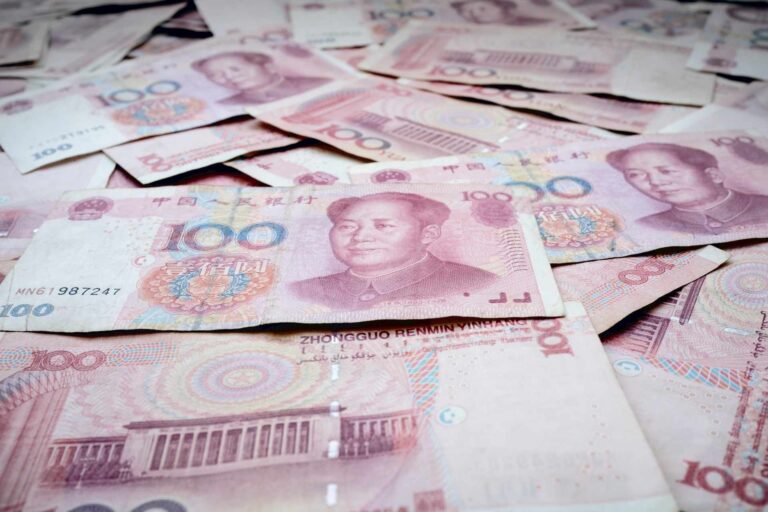The decision of the People’s Bank of China to cut interest rates is unusual. And it is unusual since the US and EU are raising them higher and higher due to high inflation.
However, we are talking about a country that in recent years has managed not to go into recession even during the first Covid waves. In 2020 it recorded a GDP increase of 2.3%, while the US and EU recorded -3.5% and -6.1% respectively.
And so also in 2021 and 2022, despite domestic issues and political disagreements with the US over the fate of Taiwan and its ambiguous position in the Russian-Ukrainian conflict. But not in 2023.
It is only in the last year that China has begun to creak. And before the situation precipitates the PBOC has decided to make its first move, that of cutting rates. The first of a series of moves to restore strength to a stalled economy.
Table of Contents
China’s unexpected move: it cuts rates while everyone else is raising them
We are talking about 10 points. This is the cut announced by the Chinese Central Bank, the People’s Bank of China (PBOC). With this cut, the rate goes from 2% to 1.9%. This is the first time the PBOC has cut its short-term lending rates in 10 months.
With this cut the yuan and Chinese BOTs hit a 6-7 month low:
- the yuan reached 7.168 to the dollar, a six-month low;
- Chinese government bonds fell to 3.016, a 7 ½ month low.
It is a move in total contradiction to what the US and the EU are doing with their Central Banks, even if for them it is due to the rise in consumer prices, which are too high despite the continuous rate hikes, including the last one scheduled for 15 June.
This has a logical explanation. Namely, to restore market confidence. The same Reuters Ken Cheung, chief Asian FX strategist at Mizuho Bank, noted that the PBOC’s decision should be seen from the perspective of stimulating the economy. Especially after the disappointing results of the last quarter.
It must be said, however, that the policy of cutting rates may not be enough for a giant like China. And that is the opinion of many inside the Chinese banking system, which has been on high alert for months due to some very suspicious macroeconomic data.
How is the economy doing in China
The Chinese economy has always been doing great in recent years, becoming an essential trading partner for the West. Only in the last year has something cracked. Perhaps as a result of the abandonment of the zero-Covid regime, the Beijing government has found itself with an economy where:
- the real estate sector is slowing down;
- trade cannot keep up;
- youth unemployment is sky-high.
All macroeconomic data that have led to a GDP of 2022 at 3%, the lowest increase since the 1970s.
This is why Beijing is trying to revive the economy, albeit belatedly. Already during the pandemic, the US and the EU applied various fiscal and monetary stimuli, especially against inflation. While Beijing preferred to concentrate its forces on countering the Covid.
What cutting rates means
The interest rate cut is to be understood as an expansive measure if you want to stimulate your economy with more liquidity, i.e. more money at a lower cost.
By cutting rates, China will pave the way for lowering rates on medium-term loans, and ensuring sufficient liquidity in the financial sector. Action was already taken days ago by as many as six large local banks, precisely with the cut in deposit rates.
But, as already mentioned, the policy of cutting rates is by no means sufficient, especially if the aim is to support the real estate sector and domestic demand.
Indeed, Beijing is considering a broad package of stimulus proposals, however limited compared to those in previous recessions.
The reason behind this ‘prior restraint’ is only one: China’s debt, which has increased considerably in recent years. Excessively so, in fact, analysts are concerned about China’s financial stability, especially with this suspicious macroeconomic data.
But it is not only China that worries the markets. In addition to her, many are worried about what will be decided by the FED in the coming days.
Many are hoping for a suspension of rate hikes after 10 consecutive increases. Otherwise there will be the risk of aggressive forward guidance from Fed Governor Jerome Powell if inflation does not come down soon.












